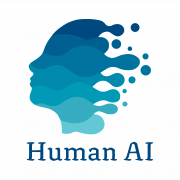Personality, culture and innovation
Personality, Culture and Innovation: Relationships between Personality Traits and National Innovation Scores
Innovation is a complex process that requires a range of skills and characteristics such as creativity, problem-solving ability and strategic vision. Is it possible that personality also plays a role in innovation? And in culture?
Historically, the belief in the variability of personality traits according to geographic location has been held, an assumption that has aroused deep interest in the academic community. However, systematic exploration of the global distribution of personality profiles has received little scrutiny to date.
Studies conducted at the nation-state level open a door to understanding how collective personality characteristics can influence a country’s ability to innovate. This is not only relevant from an academic point of view, but also has practical implications for governments and institutions seeking to drive economic growth through innovation.
OCEAN Model
The results of a large body of academic research show the benefits of using the five-factor personality model to accumulate and communicate empirical findings. The findings have numerous implications for research and practice in personnel psychology, especially in the subfields of selection, personnel training and development, and performance evaluation.
An essential aspect of this analysis is the relationship between “Openness to Experience” and innovation. The results suggest a strong positive correlation between Openness to Experience at the national level and innovation scores in terms of both input and output. This indicates that societies that value creativity, curiosity and exploration tend to be more innovative.
On the other hand, “Agreeableness” is also positively related to innovation inputs. This suggests that nations where people are more friendly and cooperative may be prone to collaborate on innovative projects and generate an environment conducive to the development of novel ideas. This has important implications for promoting collaboration and teamwork in education and business.
In contrast, no significant relationship was found between “Conscientiousness” and innovation inputs or outputs. This may indicate that perseverance and self-regulation, while valuable at the individual level, may not be as directly related to innovative successes at the national level.
Research therefore suggests that certain personality traits, such as openness to experience and friendliness, are associated with a greater capacity to innovate. At this point, it is essential to mention the educational ecosystem as a formative and transformative agent capable of creating an innovative learning environment.
It is interesting to note that the results differ when only one type of data or parameter is used; underlining the importance of using accurate and reliable measurement instruments in research, as they can affect conclusions and policy recommendations.
Towards a geography of personality traits
Other research also suggests that cultures can influence innovation. Cultures that value creativity, experimentation and cooperation may be more likely to generate innovative ideas.
The results obtained indicate that distance from the equator and average temperature do not exhibit significant relationships with personality factors. However, when cluster analysis and multidimensional scaling techniques are applied, interesting patterns are revealed. It can be seen that geographically close cultures tend to share similar personality profiles, suggesting the existence of cultural and geographic influences on the formation of collective personality traits.
A particularly relevant finding is the distinction between European and American cultures, on the one hand, and Asian and African cultures, on the other. The former exhibit higher levels of extroversion and openness to experience, but lower friendliness. This dichotomy points to the importance of considering cultural and regional factors in the study of personality traits at the global level.
However, it is important to emphasize that the differences observed between cultures could derive from multiple sources. Genetics and cultural characteristics are just some of the potential influences. To further elucidate the origins of these geographical divergences in personality traits, acculturation studies and the analysis of other natural experiments that address this complex phenomenon are required.
Fostering innovation to drive growth
Research on the relationship between personality, culture and innovation reminds us that innovation is not simply a product of investment in research and development, but is also rooted in people’s psychology and cultural dynamics. Therefore, governments and financial institutions interested in fostering a country’s economic growth need to consider promoting environments that encourage openness to experience, collaboration and creativity. This could translate into promoting soft skills education, diversity and inclusion in the workplace, and investing in the creation of workspaces that foster creativity and collaboration.
These findings therefore provide a valuable starting point for future research and raise significant questions that transcend the boundaries of psychology and geography. By deepening the understanding of the relationship between personality, cultures and geolocation, the foundations are laid for the development of more informed policy and educational strategies that stimulate innovation on a global scale.



